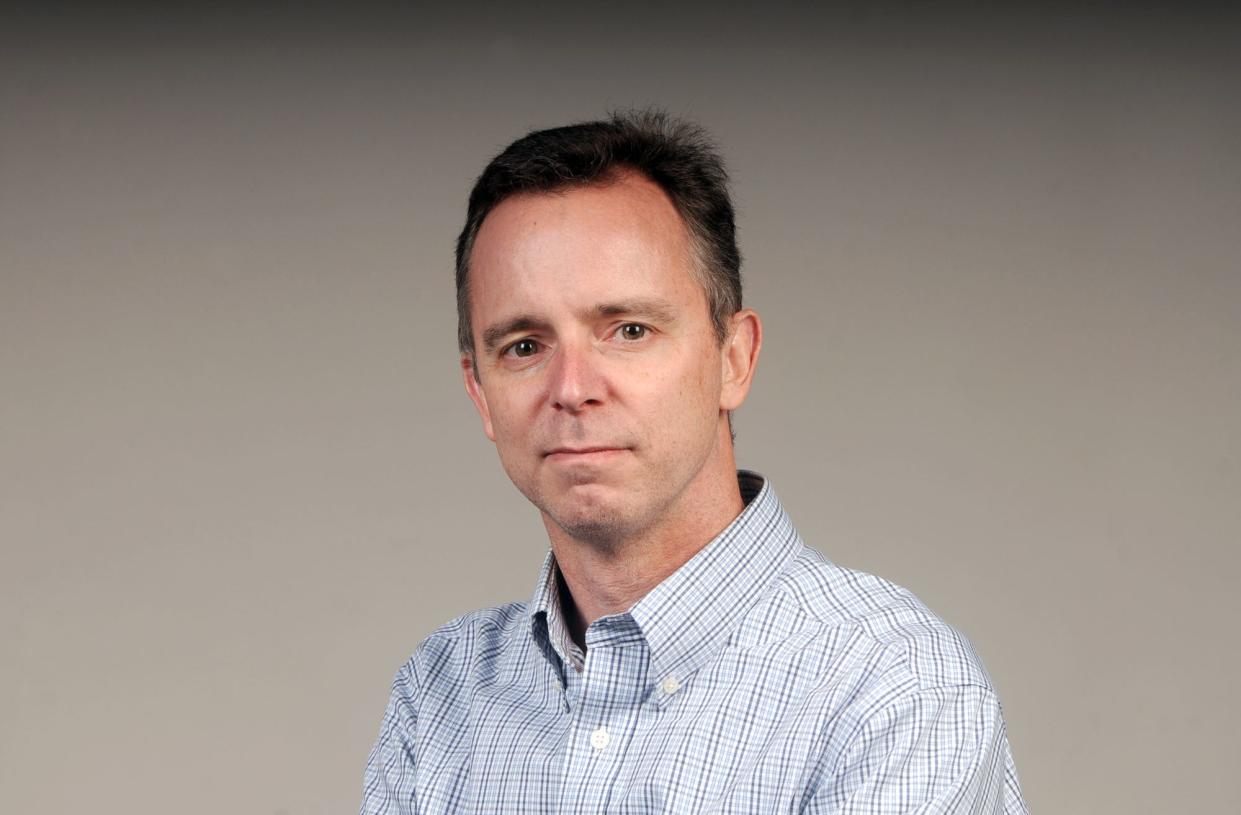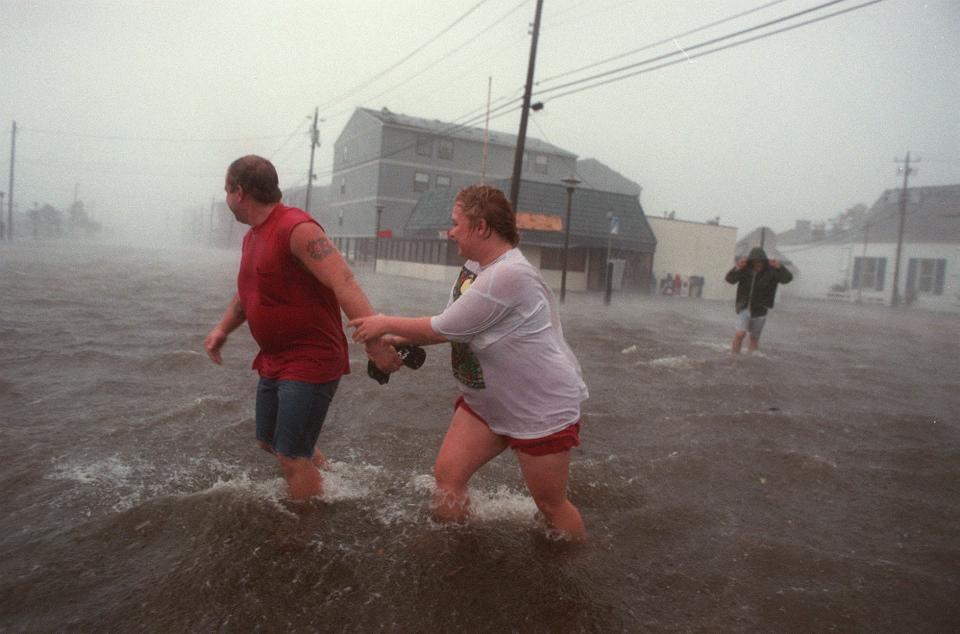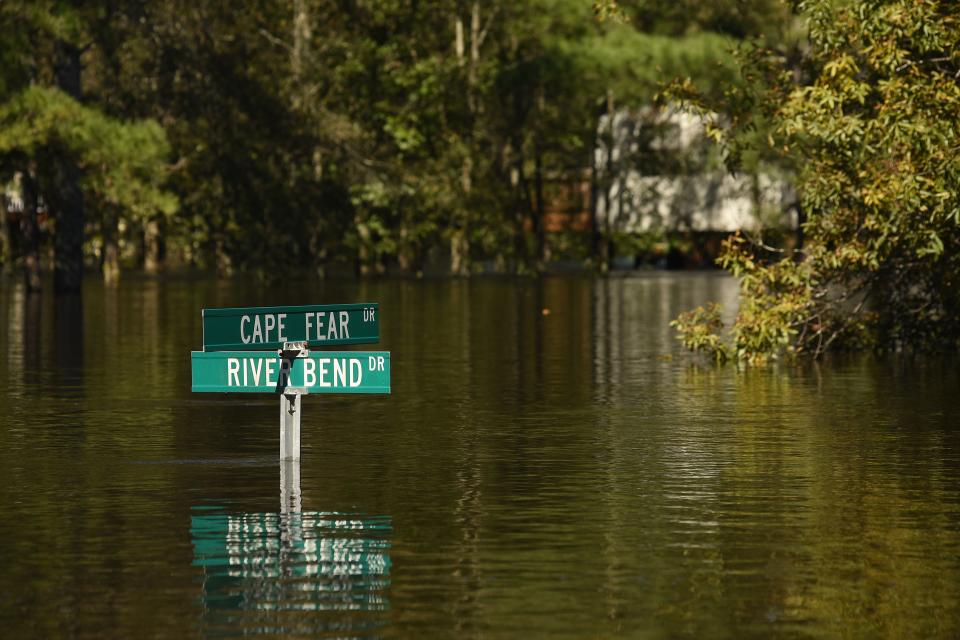Reporter's notebook: When a hurricane is on the horizon, what questions readers ask the most

When I moved to Wilmington at the start of summer back in 1999, I thought I had moved to paradise with the beach, the river and a historic downtown all literally in my backyard.
Then Hurricane Dennis soaked us. Twice.
Little did I realize that was just a table setter for the real storm taking aim at the Port City, Hurricane Floyd, which decided to pay a visit just weeks after Dennis left Southeastern North Carolina completely saturated.
More than two decades and many tropical storms and hurricanes later, preparing for and reporting on storms no longer fazes me and is part and parcel with living in this wonderful part of the country.
Since 1806, roughly 60 tropical systems have made direct landfall in North Carolina. I know for newcomers, and we have plenty of those, talk of an approaching tropical system when you already live in an area called Cape Fear can be a bit unnerving.
To that end, here are some of the most frequent questions I get asked by readers and neighbors when the surf begins to kick up, the winds begin to howl, and the rain starts blowing sideways.
Should I evacuate?
This is a very personal question.
During Floyd, many people who evacuated were stuck for days trying to get back to the coast after heavy rains between the coast and Raleigh left many roads flooded and impassable for days.
That left a bad taste in many people's mouths, especially when it came to taking precautions for the next storm.
My best piece of advice is listen to the experts. If our local emergency officials recommend you evacuate, especially if you live in a low-lying or flood-prone area, then you should evacuate. Buildings and material things are replaceable. Lives are not.
But if you do decide to stay, make sure you have supplies to last several days isolated and likely without power. And don't expect emergency personnel to come and rescue you if you get in trouble. You were warned.

When is my power coming back on?
When tropical storm-force winds hit, everyone hunkers down and waits for the storm to pass.
That includes power crews.
While power outages during storms has improved dramatically over the years as Duke Energy and our local electric co-ops upgrade and "harden" their grids, outages are almost inevitable during major storms.
In most cases, power crews − often reinforced with personnel from areas far afield that have been marshaled to help with the expected repairs − will get the lights back on quickly.
But if the power stays off, be patient. Crews aren't avoiding your community on purpose, or just focusing on Wilmington's "nice" neighborhoods.
Where can I get gas?
Guess what else runs on electricity? Gas stations. So when there's no power, many gas stations aren't working.
Some of the ugliest scenes I've experienced in Wilmington are in the days after Floyd, Matthew and Florence when power was out, the weather was hot and sticky, nerves were frayed, and many gas stations were still closed or their tanks pumped dry.
That's why the two things we make sure reporters have when we're preparing for a hurricane is a full tank of gas in their vehicle and a good amount of cash on hand.
Because guess what else doesn't work when there's no power?
Gareth McGrath: I was born in England, but here's why I call Wilmington home now

Where is Jim Cantore?
Everyone's favorite, or feared, meteorologist is a celebrity in his own right.
The joke is if Jim Cantore from The Weather Channel arrives in your neck of the woods, you might want to leave. Except it's no joke.
Forecasters, and the media, are often blamed for trying to scare coastal residents with their pre-hurricane season predictions and storm coverage as soon as a tropical system forms somewhere in the middle of the Atlantic.
Is it over-amplified? Maybe at times. But I do know that I'd rather have my community prepared and informed than surprised and overwhelmed, especially in a world buffeted by climate change.
And even if our piece of the coast isn't hit this hurricane season, or if it's a slow season, it only takes one storm coming your way to really ruin your year. Just ask Charleston, S.C., after Hurricane Hugo in 1989 and South Florida after Hurricane Andrew in 1992 − two hurricane seasons that were average at best, but included one devastating landfalling storm.
Reporter Gareth McGrath can be reached at GMcGrath@Gannett.com or @GarethMcGrathSN on X/Twitter. This story was produced with financial support from the Green South Foundation and the Prentice Foundation. The USA TODAY Network maintains full editorial control of the work.
This article originally appeared on Wilmington StarNews: When a hurricane is on the horizon, what questions readers ask the most

